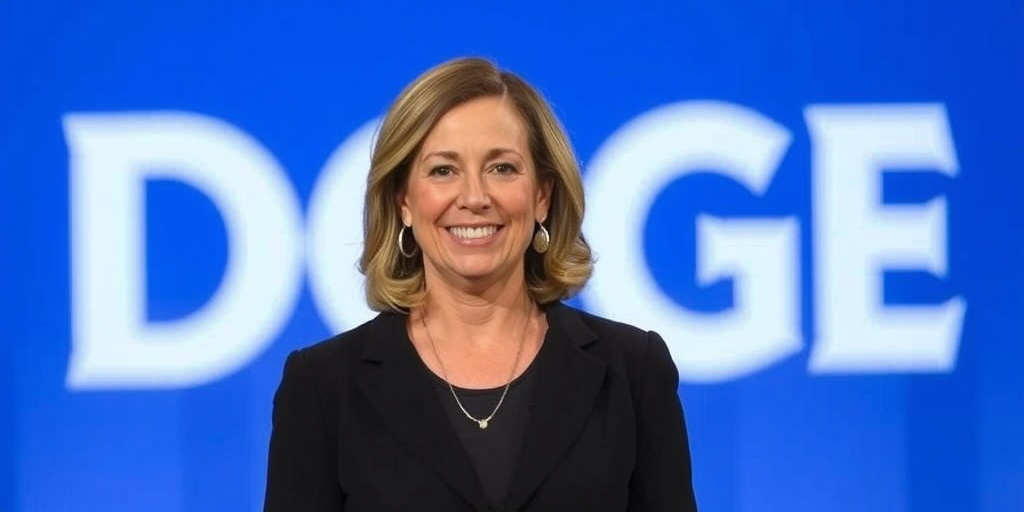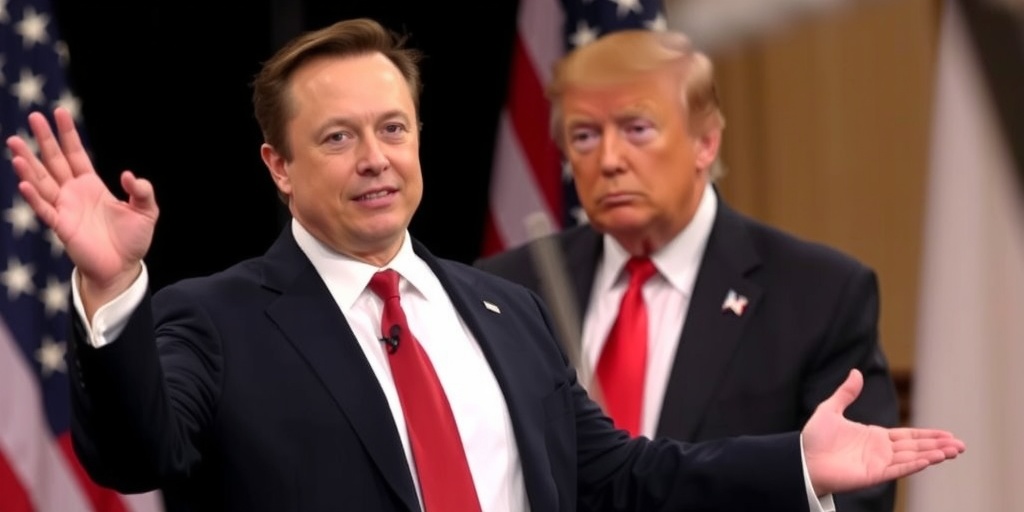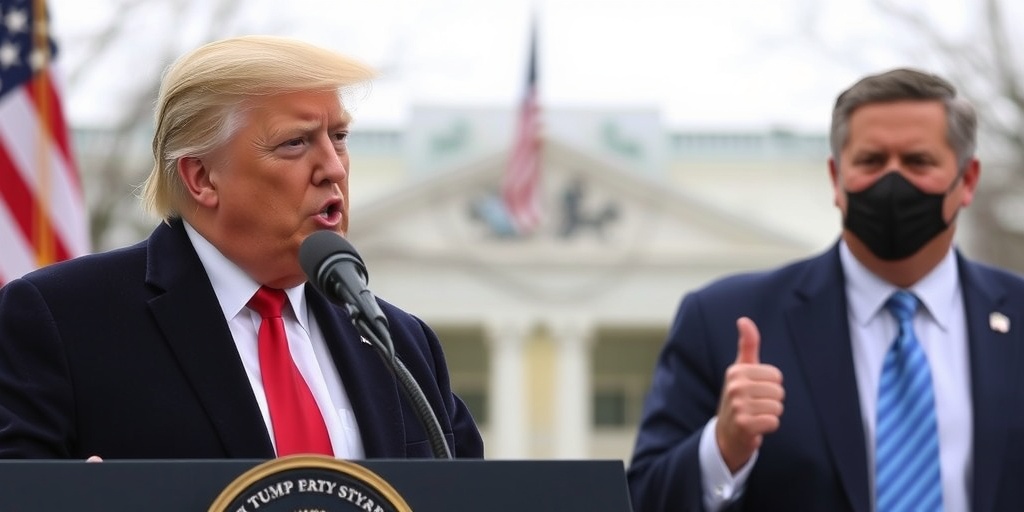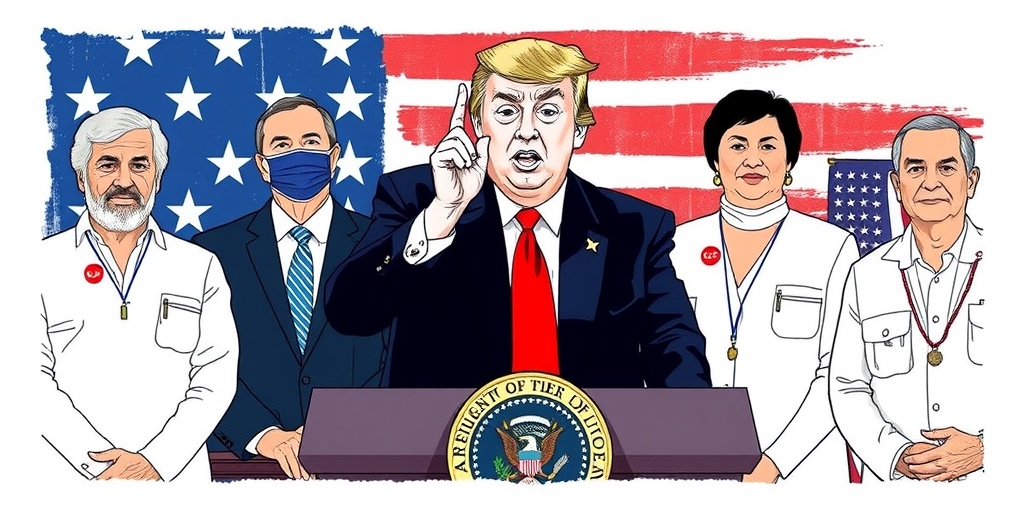Now Reading: Trump’s Air Force One Upgrade: Security Requirements Relaxed
-
01
Trump’s Air Force One Upgrade: Security Requirements Relaxed
Trump’s Air Force One Upgrade: Security Requirements Relaxed
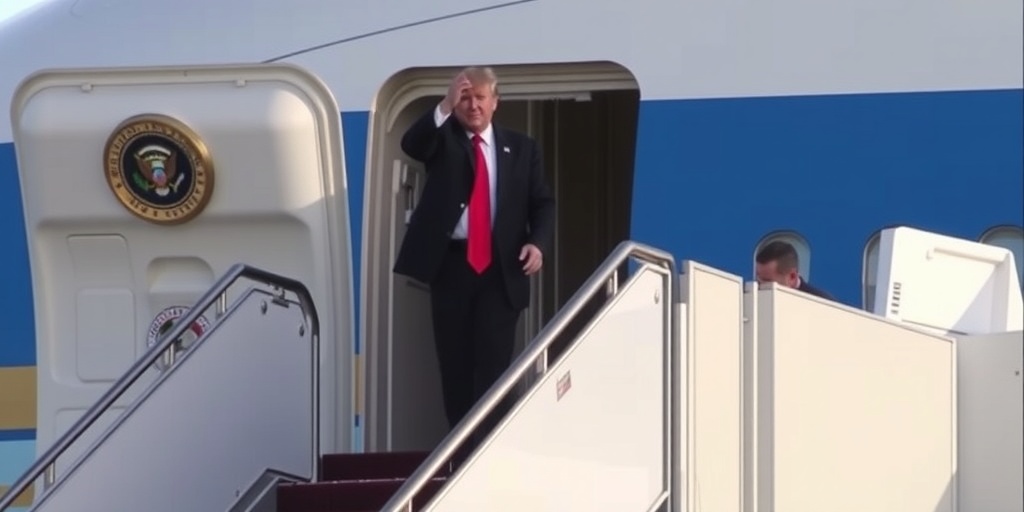
Title: Easing Security Requirements for Boeing Staff in Air Force One Project
In a recent decision that has garnered significant attention, the Trump administration has opted to relax security requirements for certain workers at Boeing involved in the production of new Air Force One jets. This change comes as part of a concerted effort led by President Donald Trump and entrepreneur Elon Musk to expedite the construction of the long-delayed aircraft, which were originally slated for completion by the end of the previous year.
The recent policy adjustment specifically pertains to mechanics and personnel who work on less sensitive components of the Air Force One jets. Under the new guidelines, these individuals will no longer be required to obtain a special high-level security clearance, referred to as the Yankee White clearance. Traditionally, this clearance is mandated for White House staff and individuals who are frequently in close proximity to the president. While workers involved in the project will still need to secure some degree of security clearance, the removal of the Yankee White requirement for certain roles is expected to facilitate the hiring process at Boeing and accelerate project timelines.
Previously, the stringent clearance requirements had posed significant obstacles for Boeing as the company worked to recruit qualified personnel necessary for the project. The heightened scrutiny and prolonged vetting process have resulted in delays and frustrations, particularly for a program that has already been under considerable public scrutiny due to its extended timeline.
Reports indicate that this push for relaxed security measures was significantly influenced by Elon Musk, who has been actively advocating for changes that would allow Boeing to speed up its operations. According to a report by The New York Times, Musk’s involvement and encouragement played a pivotal role in initiating this policy shift. The change in security clearance requirements has also been confirmed by sources within the Pentagon, underscoring the governance and oversight of the project.
Boeing’s job postings seem to reflect this newfound flexibility. Recent listings no longer explicitly mention that candidates need to possess the Yankee White clearance, a notable shift from earlier requirements. This alteration is poised to enhance Boeing’s ability to staff the Air Force One project more efficiently, ensuring that the necessary workforce can be acquired without the encumbrance of extensive background checks.
Despite this positive development, Boeing has faced increasing scrutiny due to ongoing delays in the delivery of the new Air Force One jets. The company entered into a contract with the U.S. Air Force in 2018, with initial projections indicating that the planes would be ready by late 2022. As delays have compounded, the Air Force’s current estimates suggest that the jets may not be completed until 2028 or beyond, leading to public criticism and frustration directed at Boeing and the Trump administration.
Deborah VanNierop, a spokesperson for Boeing, has refrained from commenting directly on any shifts to security clearance protocols but affirmed the company’s adherence to the security requirements set forth by the Air Force for this project. Kelly Ortberg, Boeing’s chief executive, expressed optimism regarding the collaboration with Elon Musk, emphasizing the mutual goal of expediting the Air Force One program. Ortberg stated, “I’m all in on trying to pull these airplanes up and get the president the airplanes,” highlighting the commitment from Boeing’s leadership to resolve delays and meet the urgent demands of the project.
The relaxation of security requirements for Boeing staff not only reflects the urgency of the Air Force One project but also highlights the interplay between the military procurement process and political interests. By streamlining hiring procedures, the administration aims to not only appease stakeholders like Musk but also enhance the operational efficiency of Boeing during a time when the company is under increasing pressure to deliver on government contracts.
In conclusion, the recent decision to ease security requirements for Boeing personnel involved in the Air Force One project signals a strategic maneuver aimed at overcoming the challenges posed by lengthy hiring processes and project delays. With influential figures like President Trump and Elon Musk advocating for expedited progress, Boeing may finally be positioned to meet the mounting expectations associated with this high-profile aircraft initiative, paving the way for a more timely delivery of the new presidential planes. As developments continue to unfold, the implications of these changes for both Boeing and the overall military procurement landscape remain to be fully realized.
Stay Informed With the Latest & Most Important News
Previous Post
Next Post
-
 01New technology breakthrough has everyone talking right now
01New technology breakthrough has everyone talking right now -
 02Unbelievable life hack everyone needs to try today
02Unbelievable life hack everyone needs to try today -
 03Fascinating discovery found buried deep beneath the ocean
03Fascinating discovery found buried deep beneath the ocean -
 04Man invents genius device that solves everyday problems
04Man invents genius device that solves everyday problems -
 05Shocking discovery that changes what we know forever
05Shocking discovery that changes what we know forever -
 06Internet goes wild over celebrity’s unexpected fashion choice
06Internet goes wild over celebrity’s unexpected fashion choice -
 07Rare animal sighting stuns scientists and wildlife lovers
07Rare animal sighting stuns scientists and wildlife lovers













